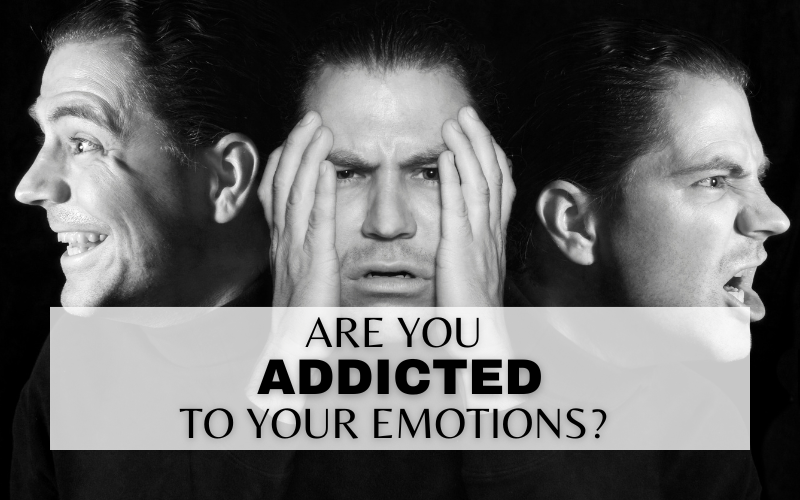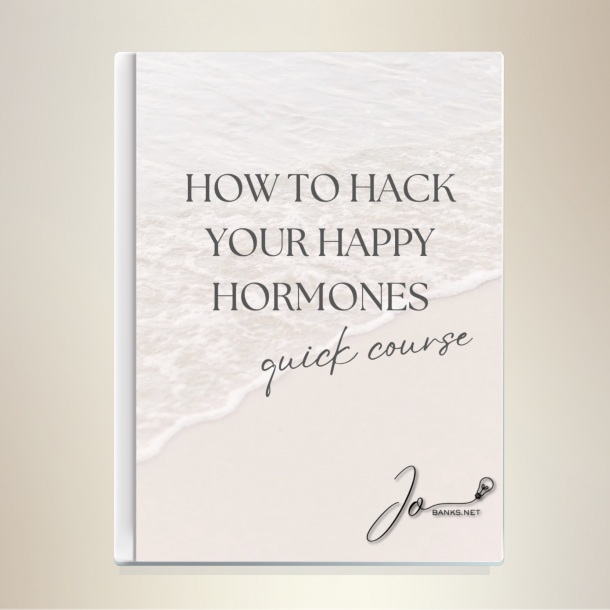In a previous article, ‘What Labels Are Holding You Back’, I mention that we have to remain consistent with our view of ourselves, so we repeat the same thoughts, beliefs and behaviours that reinforce it. In addition, we also seek evidence and validation to support our opinion.
There are always at least two ways of looking at any situation, so whatever we look for, we’ll undoubtedly find…
Seek, and ye shall find
However, it goes deeper than that…
Biochemicals
In articles I posted earlier this year, I discussed our biochemicals and their importance in how we think and behave. These essential hormones also have a significant effect on our mood and emotions.
Dopamine
Dopamine is often called the ‘happy hormone’ and is incredibly addictive. In fact, if you’re addicted to anything, it isn’t actually the ‘thing’ you’re dependent on but rather the dopamine you release when you do it.
Social media scrolling, shopping, ticking things off a list, Netflix bingeing, drugs, alcohol, chocolate, sugar, etc. all produce varying dopamine levels – some deliver higher doses than others.
The more you do these types of activities, the harder it is to get the same original ‘high’, so you do them in significant quantities or more regularly in the hope of experiencing the same initial response – that’s how they become addictive.
Endorphins
Endorphins are often referred to as the ‘feel-good hormone ‘or the ‘painkiller’. Like dopamine, they give a feeling of euphoria following physical exercise and are also responsible for helping our bodies heal.
We’ve all heard of the ‘runners high’ – it describes the elation we experience after physical exercise. This hormone feels so good that it can also become addictive; think of people who regularly undertake extreme and endurance sports, marathons, triathlons, Iron Man, etc.
I’ve coached several semi-professional and professional sports people over the years. They tell me that training and actual races hurt like hell and aren’t particularly enjoyable. However, the feeling afterwards (the huge hit of endorphins and dopamine) is indescribable.
Endorphins and dopamine (as well as oxytocin, the bonding and love hormone) are present when we experience positive emotions such as happiness, joy, pride, empathy, love, and hope.
Adrenaline and Cortisol
Adrenaline and cortisol are the two hormones we produce when we feel stressed, anxious or overwhelmed. They are responsible for our flight, fight, freeze stress response and are present when we experience negative emotions such as anger, hostility, hate, fear, guilt, shame, and sadness. Again, these two chemicals are extremely powerful, not to mention addictive.
If you have a lot of stress or anxiety in your life, likely, your body has become addicted to the associated stress hormones. However, suppose you recognise that you need to take remedial action and begin to build self-care practices into your daily routine. In that case, you may find that, seemingly out of nowhere, you get a negative thought or something unexpected that triggers your stress response.
It may even be something relatively small that ordinarily wouldn’t bother you, but for some reason, it provokes a massive, disproportionate response in you. This isn’t a coincidence. Your body is craving the missing biochemicals that it’s so used to.
For example, say you get up in the morning, decide to work from home, and are in a relatively good mood. Suddenly, at 8.30 am, you get a horrible/negative/stressful thought that triggers your stress response.
What’s happened is your subconscious has thought, ‘Hmmm, at this time, we should be sitting in traffic. Frustration or even road rage should have kicked in, producing a big shot of adrenaline and cortisol.’
‘That doesn’t seem to be forthcoming, so let’s chuck a negative thought in there to see if we can elicit the biochemicals we’re craving that way instead’.
As I’ve said many times before, our brains can’t tell the difference between a real-life physical experience and a vivid thought. Therefore, it produces the same chemical reaction to our intense thoughts as it would if the situation were happening.
Emotions and Biochemicals
As I mentioned at the top of this article, we are creatures of habit. Research shows that we have c60,000 thoughts every day, and up to 95% of those are the same day in, day out. Our thoughts affect our emotions through our biochemicals, which inform our behaviours. So, it isn’t difficult to see how we get addicted to our feelings.
When I first heard these concepts a few years ago, it really hit a chord. As you’re undoubtedly aware, if you follow my work, I had a difficult upbringing. I lived in a particularly negative household and was heavily programmed (conditioned) to view the world and myself negatively.
After working with thousands of people, I’m aware now that my parents’ thoughts and beliefs are extreme. However, as a child, I had nothing else to compare to; what goes on in our childhood homes is normal to us.
Even though I’ve been ‘doing the work’ (self-development) for nearly twenty years now, I still often have waves of negative emotions that seem to come entirely out of nowhere. I can be having a near-perfect day and be in a fabulous mood when, when all of a sudden, something triggers my stress response out of the blue.
I couldn’t understand why that would happen until I started studying the work of Dr Joe Dispenza. Suddenly, my abrupt downturn of emotions finally made perfect sense.
I was so used to the stress chemicals, cortisol and adrenaline, from a very early age that as I became more adept at managing my dysregulated nervous system and those hormones decreased, my body began to crave them.
Knowing that has made such a big difference to me. Now, if I’m in a good mood and suddenly struck with an errant thought that threatens to push me down a negative spiral, I can stop, rationalise what’s happening and do something different to half it. In NLP (neurolinguistic programming), we call that a pattern interrupt.
Typically, I do one of the following things:
- Purposely change my thoughts to something more positive
- Think about what I’m grateful for and whom I love
- Ten star jumps (if I’ve already triggered adrenaline and cortisol, I need to close the loop and burn those chemicals off quickly– the only way to do that is by moving your body!)
- Go for a walk (if I have time)
- Go outside for some fresh air
- Journal my thoughts (it’s always good to keep a note of triggers – we can’t change what we aren’t aware of
If there are any topics that you’d like me to cover in upcoming articles, I’d love to hear from you. Please feel free to contact me a jo@jobanks.net.



